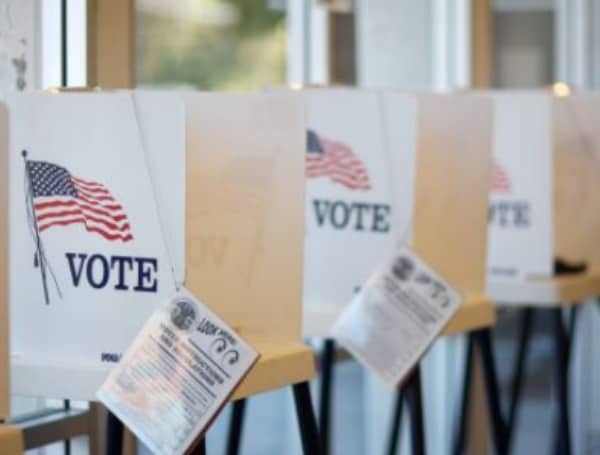As of Thursday morning, over 42,000 mail-in ballots have been cast for the upcoming November 5 election, with Democrats holding a slight lead over Republicans.
According to data from the Florida Division of Elections, 42,573 mail-in ballots have been received by election supervisors. Of those, 18,578 were submitted by Democrats, 15,052 by Republicans, 7,909 by unaffiliated voters, and 1,034 by third-party voters.
Amendment 3 on Florida’s November Ballot: Voters to Decide on Recreational Marijuana
As Floridians head to the polls for the November 5 election, one of the key issues on the ballot will be Amendment 3, which seeks to legalize the recreational use of marijuana for adults over 21. The proposal, which has garnered significant attention and funding from both advocates and opponents, could transform Florida’s stance on cannabis if passed.
Read: Florida Judge Denies Blocking State Agency’s Abortion Amendment Information
What Amendment 3 Proposes
Amendment 3 would allow individuals over the age of 21 to legally possess and use marijuana for personal, non-medical purposes. It also gives the state legislature the power to regulate and license the cultivation, production, and sale of recreational marijuana. The proposed amendment would not permit home cultivation of marijuana, a point that has been a focus of opposition arguments.
If passed, Florida would join 23 other states that have already legalized recreational marijuana use.
Support for the Amendment
Trulieve, Florida’s largest medical marijuana company, has been a major supporter of the measure, contributing over $90 million to the campaign pushing for its approval. Advocates argue that legalizing recreational marijuana will generate significant tax revenue for the state, reduce law enforcement resources spent on marijuana-related arrests, and regulate the product to ensure safety and quality.
Supporters also emphasize that legalization reflects the growing acceptance of marijuana in society, pointing to polls that suggest many Floridians are open to recreational use. Proponents claim the amendment would also help reverse decades of criminal penalties for marijuana possession, which have disproportionately impacted minority communities.
Opposition to the Amendment
However, opposition to Amendment 3 is strong. Governor Ron DeSantis and many Republican lawmakers have voiced concerns, arguing that legalizing recreational marijuana could harm public health and safety. Opponents also claim that the amendment benefits “Big Weed” companies, like Trulieve, by limiting who can legally grow and sell marijuana, effectively maintaining a monopoly on the industry.
Critics worry that legalization could lead to an increase in impaired driving, higher rates of substance abuse, and negative impacts on young people. Some also express concerns about the potential burden on law enforcement and the healthcare system.
Voter Perspectives
The issue of legalizing recreational marijuana has become one of the most talked-about issues in Florida’s upcoming election. According to recent polls, voters appear to be divided. Some are swayed by the potential economic benefits and desire for personal freedom, while others are concerned about the social and health implications of widespread marijuana use.
What’s Next?
In order for Amendment 3 to pass, it must receive at least 60% of the vote, a threshold required for constitutional amendments in Florida. As the election nears, both supporters and opponents are ramping up their campaigns to sway undecided voters.
With its potential to reshape Florida’s marijuana laws, the outcome of the vote on Amendment 3 is poised to have long-lasting effects on the state’s economy, legal system, and culture. Voters will have the final say on November 5.
Please make a small donation to the Tampa Free Press to help sustain independent journalism. Your contribution enables us to continue delivering high-quality, local, and national news coverage.
Android Users: Download our free app to stay up-to-date on the latest news.
Connect with us: Follow the Tampa Free Press on Facebook and Twitter for breaking news and updates.
Sign up: Subscribe to our free newsletter for a curated selection of top stories delivered straight to your inbox.

